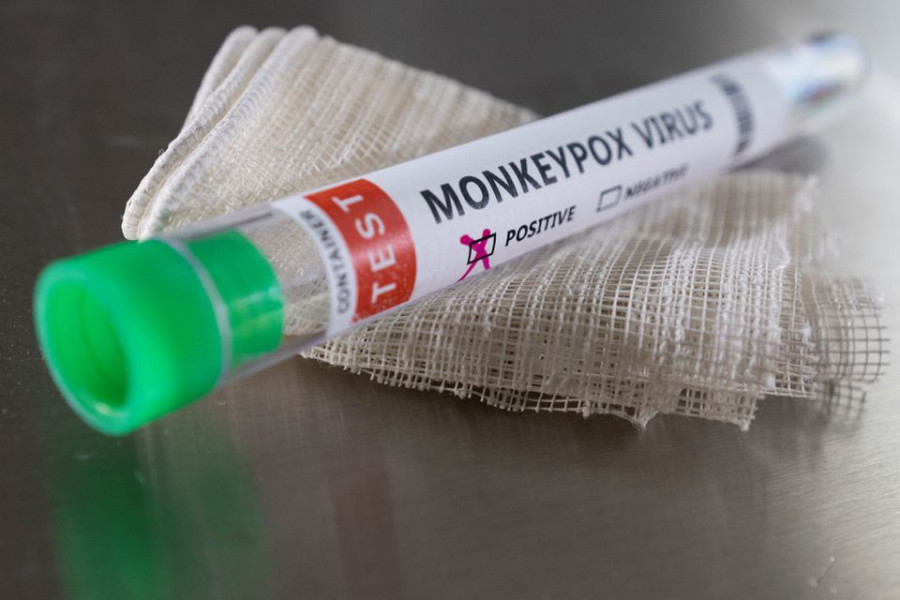Editorial
Virus by another name
Nepal should start preparing for a fight against the monkeypox right away.
If we had started to think that we were headed towards the end of the virus problem with a relative fall in the number of Covid-19 cases worldwide, we seem to be reaching a conclusion too early. There seems to be no respite from the "new" normal of maintaining physical distancing as countries across Europe and North America report cases of monkeypox transmission. For the uninitiated, monkeypox is a transmissible disease quite similar to smallpox, but it is considered less severe and less infectious. However, its mildness should not fool us into believing that we can get away with minimum disruption, the same mistake we committed in the early days of Covid-19. As of now, the monkeypox has spread to over 16 nations outside Africa, the largest outbreak outside the continent in 50 years; and several European countries including the United Kingdom and Belgium have issued advisories for patients to self-isolate themselves for three weeks.
As monkeypox cases rise globally even as the world is recuperating from more than two years of the Covid-19 pandemic and global geopolitical tensions, World Health Organization chief Tedros Adhanom Ghebreyesus recently lamented, "We face a formidable convergence of disease, drought, famine and war, fuelled by climate change, inequity and geopolitical rivalry." To our relief, the monkeypox is reportedly less transmissible and the illness it causes is mild, with patients contracting it recovering in a few weeks; but we cannot remain certain that it might not cause yet another disruption in the lives of people worldwide who have faced enough of a highly contagious virus for over two years. The fact that we are connected to the "global village" means we cannot ignore issues that are happening in remote corners of the world as isolated cases anymore. We are literally just a flight away from contracting any contagious virus from any place in the world.
To our dismay, we have a fairly recent history of spectacular failures in our response to Covid-19. For months, when the world hustled to make arrangements for hospital beds and oxygen cylinders, Nepal's officials remained cross-legged, certain in their belief that the virus would not enter Nepal. We have had a minister who claimed to promote Nepali tourism by presenting Nepal as a place that has no Covid-19 cases, only to realise that the virus was just around the corner. We have had a prime minister who misled the citizens with pseudo-scientific claims that the coronavirus was just a seasonal flu, and that it could be shooed away with just a sneeze. By the time 20 people had died of Covid-19 in mid-June two years ago, KP Sharma Oli was still claiming that the deaths had been exaggerated in line with World Health Organization guidelines, and that those who succumbed to the virus had other pre-existing ailments.
As the Post reported on Tuesday, officials remain clueless as to how we are to prepare for the monkeypox in advance. The Health Ministry is yet to alert agencies about the virus; even the health desk at Tribhuvan International Airport has yet to receive word on keeping a vigil against the virus. We cannot remain complacent and repeat the same mistakes that we committed during the initial outbreak of Covid-19. The time to act against a possible monkeypox outbreak in Nepal is now.




 9.83°C Kathmandu
9.83°C Kathmandu














